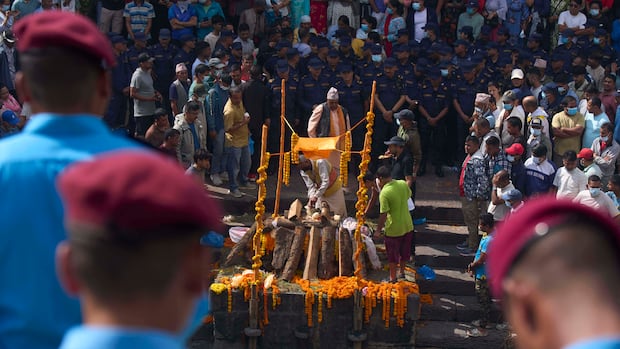Nepal’s former chief justice, Sushila Karki, has been selected as the interim leader following Prime Minister K.P. Sharma Oli’s resignation due to violent anti-corruption demonstrations, as confirmed by a Nepalese presidential office official.
At 73 years old, Karki, the first female to have served as the chief justice of Nepal’s Supreme Court, is set to be sworn in on Friday, according to Archana Khadka Adhikari, an information officer at the president’s office.
The country witnessed significant turmoil this week with 51 casualties and over 1,300 injuries amidst clashes between protesters and law enforcement, triggered by a social media ban that has since been revoked. The unrest only calmed down after Oli stepped down.
Situated between India and China, Nepal has been grappling with political and economic uncertainties since the abolition of its monarchy in 2008, causing many to seek employment abroad and send remittances back home.
Normalcy seems to be gradually returning to Kathmandu as shops reopen, cars fill the streets, and police officers exchange firearms for batons. While some roads remain blocked, fewer soldiers are patrolling the streets, and authorities have begun releasing the bodies of those who lost their lives during the protests to their families.
The casualties, as reported by police spokesperson Binod Ghimire, include 21 protesters, nine detainees, three police officers, and 18 others. Among them was 24-year-old protester Ashab Alam Thakurai, who had recently gotten married.
Nepal’s military, which has a history of intervening in times of crisis like the pro-democracy movements in the 1990s and the anti-monarchy protests in 2006, is widely respected despite its limited involvement in border conflicts. The army’s recent role in restoring order during the ongoing protests marks a significant challenge for them.
While the army’s intervention has helped restore calm and engage in dialogue with protesters, concerns remain about their political interference. The military’s involvement is seen as a temporary measure to assist in resolving the crisis without getting entangled in political matters.
The ongoing transition in Nepal, akin to recent events in Bangladesh, underscores the need for a stable interim leadership to navigate the country through these turbulent times. The military’s role in maintaining peace and facilitating dialogue without overstepping political boundaries is crucial, as emphasized by security and strategic affairs analyst Geja Sharma Wagle.



